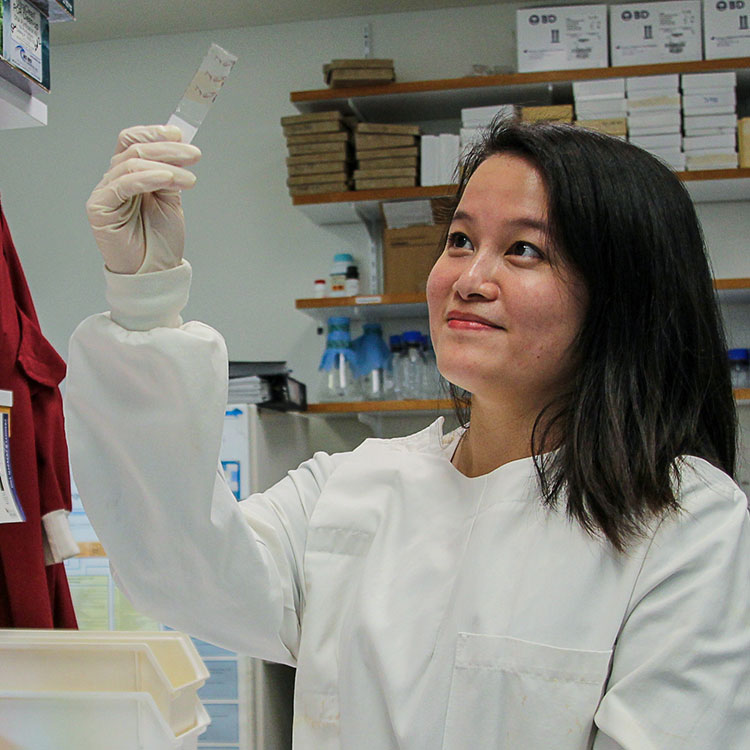Search
Research
Living closer to the beach is associated with better socioemotional development in young boysNatural outdoor environments such as green and blue spaces have increasingly been seen as key health and wellbeing determinants for adults. However, it is unclear if these effects are seen in young children. We examined the associations between access to natural green and blue space and young children's socioemotional development.
Research
Longitudinal Study of Indigenous Children: Adolescent never smoking and associations with individual, social, and environmental factorsFuelled by the tobacco industry, commercial tobacco use is a major cause of preventable morbidity and mortality among Aboriginal and Torres Strait Islander peoples. Preventing adolescent smoking initiation is critical to reducing uptake. Understanding individual, social, and environmental factors that are protective against smoking can inform prevention strategies.
Research
Immunogenicity, Reactogenicity, and Safety of a Pentavalent Meningococcal ABCWY Vaccine in Adolescents and Young Adults who had Previously Received a Meningococcal ACWY VaccineA MenABCWY vaccine containing 4CMenB and MenACWY-CRM vaccine components has been developed to protect against the 5 meningococcal serogroups that cause most invasive disease cases.
Research
#Parentingtips: A Descriptive Study of Information for Parents on TikTokParents and caregivers often turn to the internet for information about their child's health and development. Research investigating content related to parenting on the world's most popular social media platform, TikTok, has not been conducted.
Research
Short-Term Diabetic Retinopathy Status in People with Type 1 Diabetes Commencing Automated Insulin DeliveryRapid improvements in glucose control may lead to early worsening of diabetic retinopathy (EWDR). There is a need to demonstrate safety in people commencing automated insulin delivery (AID) due to the known efficacy in rapid glycemic improvement. We aimed to investigate short-term DR outcomes in people (aged ≥13 years) with type 1 diabetes after initiation of AID (use ≥6 months).
Research
Whole-of-Life Inclusion in Bayesian Adaptive Platform Clinical TrialsThere is a recognized unmet need for clinical trials to provide evidence-informed care for infants, children and adolescents. This Special Communication outlines the capacity of 3 distinct trial design strategies, sequential, parallel, and a unified adult-pediatric bayesian adaptive design, to incorporate children into clinical trials and transform this current state of evidence inequity. A unified adult-pediatric whole-of-life clinical trial is demonstrated through the Staphylococcus aureus Network Adaptive Platform (SNAP) trial.
Research
The increase in medical admissions with anorexia nervosa during the COVID-19 pandemic in Western AustraliaA comparative study to describe the increase in medical admissions of children and adolescents with anorexia nervosa (AN) in Western Australia in 2019 (pre-pandemic) and 2020 (peri-pandemic).
Research
Understanding parent perspectives on engagement with online youth-focused mental health programsOnline youth-focused health programs often include parent modules—that equip parents with skills to assist their child in improving their health—alongside youth-specific content. BRAVE Self-Help, an evidence-based program designed for children and teenagers with early signs of anxiety, is a popular Australian program that includes six parent modules.

News & Events
Hear from Dr Asha Bowen at our free Girls in Science EventSecondary students have the opportunity to hear from Associate Professor Asha Bowen, a 2018 L’Oreal-UNESCO Women in Science Fellow, in a free online event this National Science Week.

News & Events
State Government boost for The Kids researchThe Kids Research Institute Australia researchers have been awarded five of eight State Government awards designed to help cover the hidden costs of conducting research.
